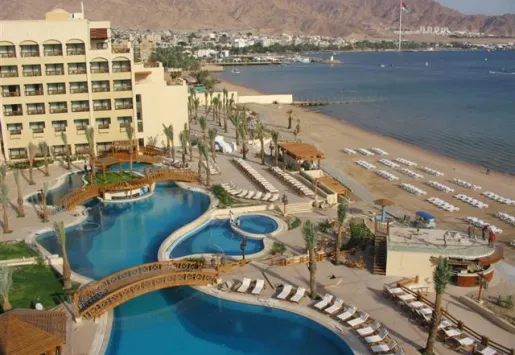
When European and Western tourists compile their wish-lists for their 2013 vacations, the Arab nations are not likely to feature highly because of the recent conflicts and fears over safety. Jordan is keen to rectify this issue and increase their dwindling visitor numbers and they have come up with an interesting form of promotion to present the country in a new light – a series of five webcams to be streamed to a worldwide audience.
This new technological initiative, which is in partnership with EarthCam, comes at a troubling time. The general, political climate of the area has had a detrimental effect on the the country; tourism is one of the biggest industries and should be bringing in seven percent of Jordan's GDP but 2012 has been a difficult year for all concerned.
Hotels nationwide have seen a decline in visitors and cancellations in the period of 2011-2012 and, while there was in increase in Arab visitors in 2012, something had to be done to ensure that worldwide visitor numbers will increase in 2013. By streaming these diverse locations via webcam, it is hoped that viewers will get to see Jordan from a different angle.
The idea behind these promotional webcams is that Jordan will be able to showcase the many appealing sides of the country to potential visitors across the globe. Cameras are set up on five sites of national importance: the port of Aqaba on the Red Sea, the citadel at Amman, the Amman skyline, the Dead Sea and the infamous city of Petra.
Clarissa Ramirez, EarthCam's Network Product Specialist, is keen to point out the way these cams can show the appeal of the country for travelers with many different tastes and the potential of the cameras is enhanced by the way that they can pick up both the sights and sounds of each subject 24 hours a day.
There are many potential benefits that this venture could provide for Jordan's tourism industry but one that is most important is the effect it could have on the Western market. This area is a top priority for the country because 2012 saw just 767 European visitors compared to the 4 million Arabs and they are keen to encourage more Western visitors.
The reputation of Jordan in the eyes of Western tourists was damaged by the Arab Spring but industry experts are hopeful that these varied video streams will show the region as a safe destination with plenty to offer.
Will these cameras be enough to improve the industry's fortunes in 2013? Al-Sharq official Ebraham Hanna, is hopeful about the possibilities of this webcam scheme, suggesting that the way the cameras showcase the unique elements of the subjects can only work in their favor, however, other industry officials are less optimistic because of fears that visitors will look away from the Arab nations in the coming year.
It is unclear whether this will be the worthwhile solution that Jordan needs but it clearly has to potential to entice worldwide travelers and change misconceptions, and that could have a brilliant effect on the nation's tourism industry in the coming year.













